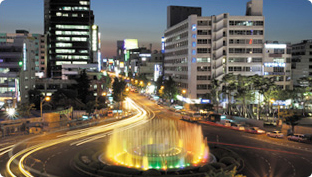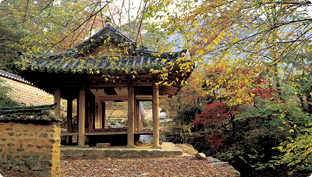
|
 |
 About Gwangju
About Gwangju  The City of Light
The City of Light

General Introduction
With a population of 1.4 million, Gwangju Metropolitan City, one of the six largest cities in Korea , is divided into five districts and was the center of administration of the Jeollanamdo Province until 2005. Gwangju City was originally established in 57 BC. It has consistently played an important role in the history of Korea's democracy and human rights movements. On both occasions of the Japanese invasion of Korea in 1592 and subsequently in 1929, the patriotism of the Gwangju people and students who willingly sacrificed their lives culminated in one of the major nationwide uprisings against Japanese colonial rule.
Gwangju has been regarded as a vanguard of the nation's democracy, as a result of a democratic uprising that occurred in May 1980, when civil demonstrations were staged in the City against the newly installed military government led by Chun Doohwan. The "Bell of Democracy" in the downtown area of Gwangju and the May 18th National Cemetery were built to recognize the City as a sacred ground of democracy. In memory of the martyrs of May 18th, the Gwangju Prize for Human Rights was created in 2000 to recognize the work of international pro-democracy leaders, such as Ms. Aung San Suu Kyi, who fights against threats to democracy.
Gwangju is also regarded as a city rich in culture and art, as evidenced by the on-going exhibitions and performances which make the city all the more vibrant and colorful. Every two years, the Gwangju Biennale features a two-month long contemporary art exhibition that invites international artists to display their theme-based work. Annually, Gwangju continues to host the Gwangju Kimchi Festival before the winter season, as it promotes the varieties of delicious Korean kimchi and traditional Korean culture. Gwangju also supports a traditional music orchestra and numerous neighborhood festivals that contain ancient and modern Korean cultural offerings.

